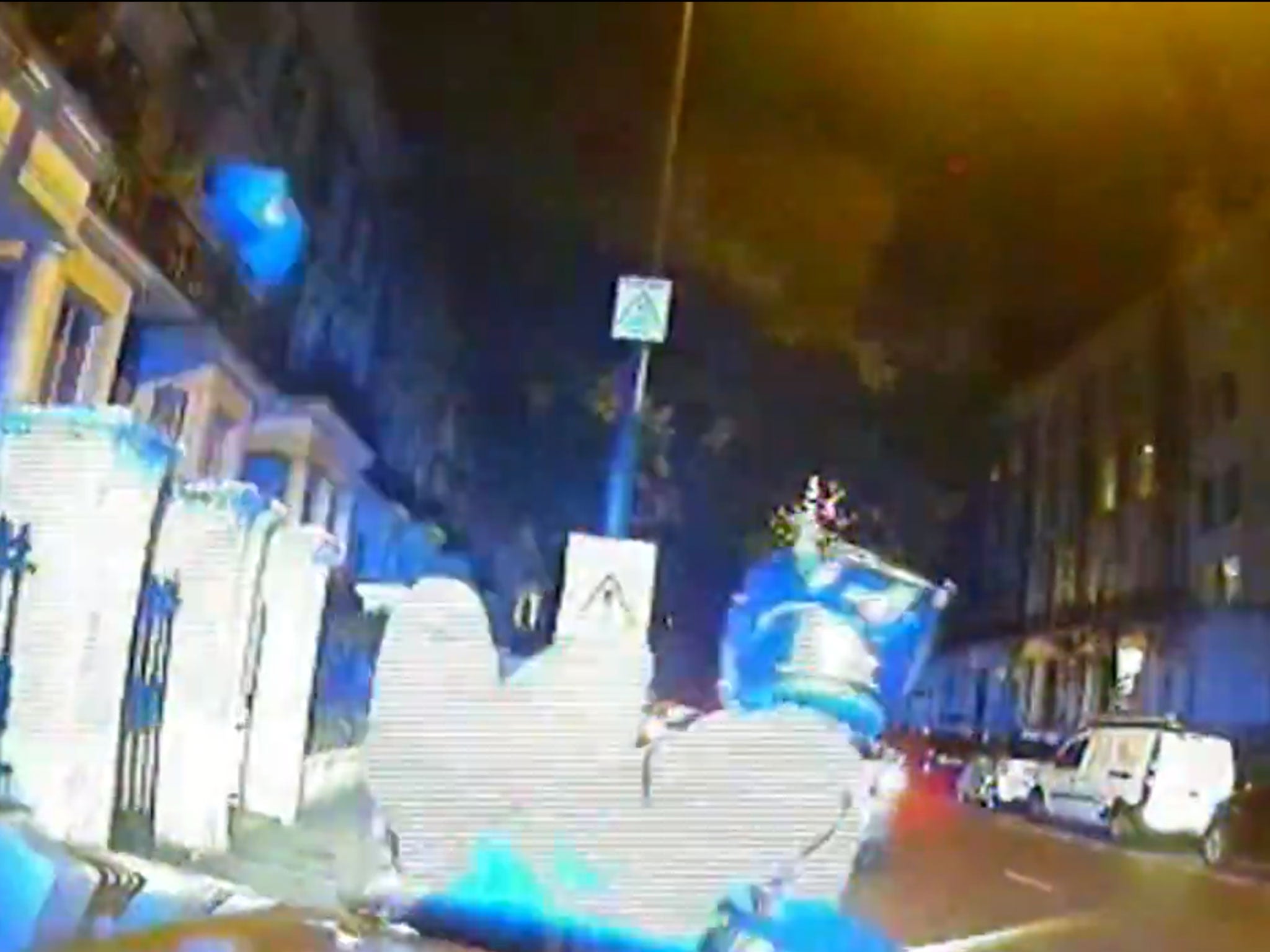Police 'must put fear back into criminals', Met chief says after officers start ramming mopeds
Forces across UK are exploring new tactics to reduce violent crime
Your support helps us to tell the story
From reproductive rights to climate change to Big Tech, The Independent is on the ground when the story is developing. Whether it's investigating the financials of Elon Musk's pro-Trump PAC or producing our latest documentary, 'The A Word', which shines a light on the American women fighting for reproductive rights, we know how important it is to parse out the facts from the messaging.
At such a critical moment in US history, we need reporters on the ground. Your donation allows us to keep sending journalists to speak to both sides of the story.
The Independent is trusted by Americans across the entire political spectrum. And unlike many other quality news outlets, we choose not to lock Americans out of our reporting and analysis with paywalls. We believe quality journalism should be available to everyone, paid for by those who can afford it.
Your support makes all the difference.Police must “put the fear back into criminals,” Britain’s most senior officer has said as forces try to combat a rise in violent crime.
Cressida Dick defended the decision to ram suspected criminals riding mopeds off the road after critics said lives were being put at risk.
The commissioner of London's Metropolitan Police admitted at least one suspect’s arm had been broken but told 5 News that “tactical contact” was one of many methods used to bring down a spate of moped crime.
“Relatively rarely during pursuits, the pursuit is brought to an end by a supremely well-trained driver having assessed all the risks,” Ms Dick said .“We’ve had to put the fear back into the criminal. They know they’re going to get caught. Our guys couldn’t be better trained to do it. They’ve been risk assessing it.
“These are people who have been repeatedly left in no doubt whatsoever that there’s a police car right behind them. If you look over your shoulder and drive on as fast as possible putting the public in danger, you should expect we will come after you.”
Footage released by Scotland Yard last week showed officers ramming cars into criminals riding mopeds and sending them tumbling into the road.
It said the newly adopted strategy was in widespread use in London after a rise in robberies, phone snatches and acid attacks using scooters.

Moped-enabled crime has plummeted by 36 per cent in the capital year-on-year since the methods were rolled out.
Ms Dick said there had so far been a “very small number of injuries,” including at least one person who broke their arm and another suspect who sustained a fracture.
“My officers make life and death decisions every day of the week, they’re very accountable,” she added. “They make best possible decisions. We are in a risky business.”
Officers have feared being jailed or sacked if moped riders were injured during high-speed chases in the past, while criminals have taken their helmets off in the belief it will prevent a pursuit.
But the government is backing new legal protections for officers, and the Metropolitan Police said it targets moped criminals “even when they ride dangerously, discard their helmets and disguise themselves in the belief that this will prevent pursuit and their capture”.
The past two years have seen a dramatic increase in the use of scooters for a range of crimes, including smash-and-grab raids, armed robbery and phone snatches seeing individual criminals swipe up to 30 phones an hour in London.
The rise is linked to a wider uptick in violence nationwide, seeing a record number of knife crimes recorded in the year to June, and children as young as nine have been found carrying weapons.
The Metropolitan Police is considering deploying armed police in areas of London where serious violence is expected to break out.
A memo from the force said the measure would be a “temporary measure for short periods of time,” and used “based on an informed and reliable intelligence picture of where gang activity is likely”.
Tottenham MP David Lammy criticised the proposal as “an attempt to put out fire with fire”.
Ms Dick said officers themselves were at increasing risk of attack after footage from County Durham showed police being surrounded by dozens of teenagers throwing bricks and fireworks.
She added that it was “shocking” to see such incidents filmed, adding: “What you see is that people have enjoyed making a video of it, as if it’s a game. A crowd gathering, they’re laughing, joking, not trying to help.”
Home secretary Sajid Javid has publicly backed a “public health approach” to tackling the root causes of violence, but critics say the government’s own austerity policies have worsened driving factors as police numbers, mental health and social work budgets are cut.

Join our commenting forum
Join thought-provoking conversations, follow other Independent readers and see their replies
Comments